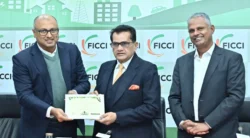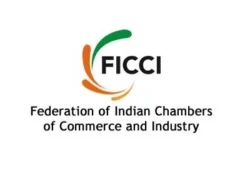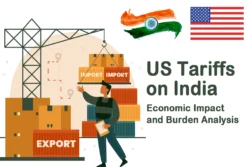
New Delhi, India - Jan 12, 2024 (UTC) - Mr. Amitabh Kant, G-20 Sherpa for the Government of India, declared that India should lead the charge in becoming the first country to industrialize without carbonizing. Speaking at the ‘FICCI Circular Economy Symposium,’ Kant emphasized the importance of transitioning to a circular economy, highlighting the myriad benefits it can bring to India, including environmental conservation, economic growth, and job creation.
The circular economy model, centered on waste reduction, local production promotion, resource optimization, and greenhouse gas emissions reduction, aligns with India’s commitments to sustainable development and climate change mitigation. Kant stressed the need for India to forge a unique development model, setting a global example.
In his address, Mr. Kant underscored the imperative for India to accelerate its growth rate from the current 7.5% to 9-10% per annum. He emphasized the shift towards renewable energy, including the production of green hydrogen, stating that India, with its climatic advantages, is poised to produce green hydrogen affordably. The objective is to reduce the production cost of green hydrogen from $4.5 per kg to $1 per kg by 2030.
Highlighting global disruptions, Kant emphasized the forthcoming focus on electric mobility, energy efficiency, and circular economy adoption. He called for a thrust on recycling, envisioning a transition from India’s current linear economic model to a circular one. Circular economy principles involve recycling and reusing inputs to reduce environmental impact and foster sustainable production.
Mr. Kant urged India to become a global champion in accelerating the transition to a circular economy, emphasizing the importance of infrastructure investment and innovation encouragement.
Dr. Michael Bucki from the Delegation of the European Union to India highlighted the potential for collaboration between India and the EU in the circular economy. Janardhanan Ramanujalu, Vice President of SABIC, stressed the need for a circular carbon economy to address challenges like carbon dioxide imbalance due to rapid urbanization and deforestation.
Amit Shah, Chair of FICCI National CE Committee, and MD & CEO of Mahindra LifeSpace Developers Ltd, highlighted that embracing the circular economy contributes significantly to addressing urgent climate change challenges.
Dr. Naresh Tyagi, Co-Chair of FICCI National CE Committee and Chief Sustainability Officer of Aditya Birla Fashion & Retail Ltd, emphasized the role of innovation and collaboration in propelling industries toward a circular economy.
The ‘4th FICCI Circular Economy Awards’ were announced during the event, along with the release of the ‘National Unified Circularity Measurement Framework.’





